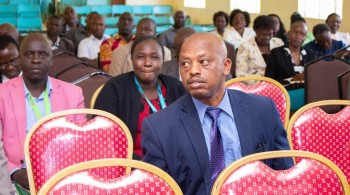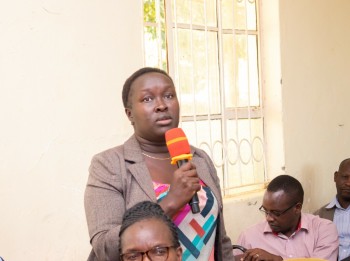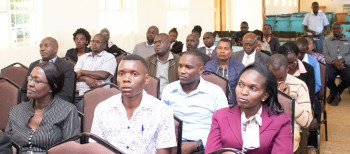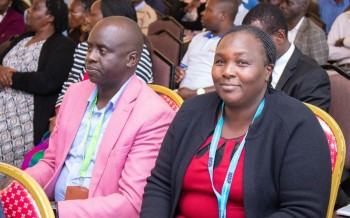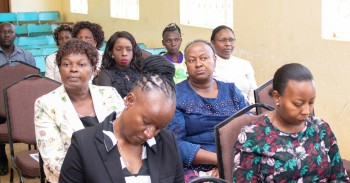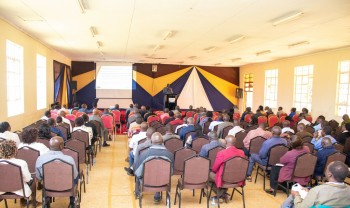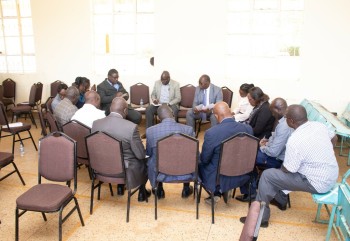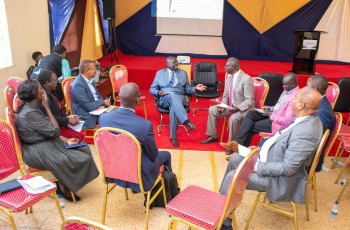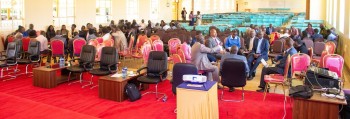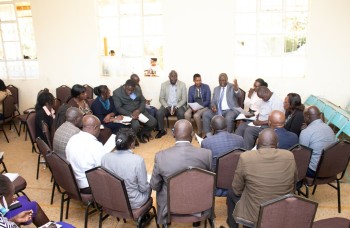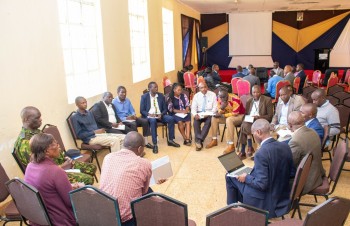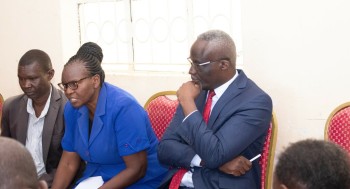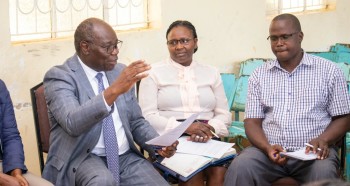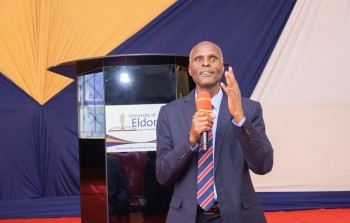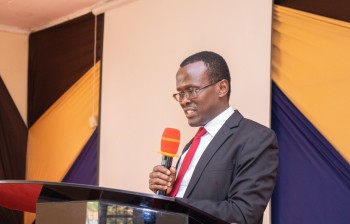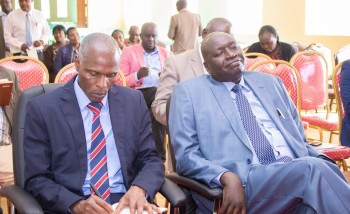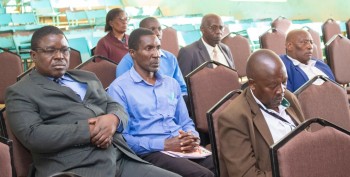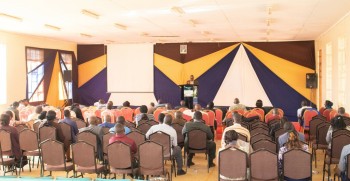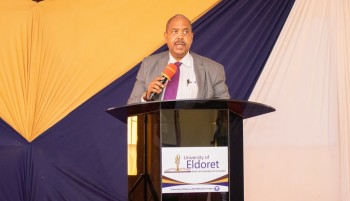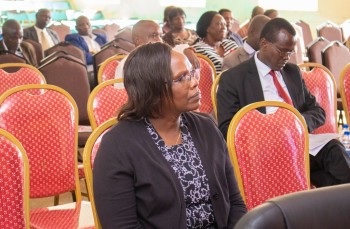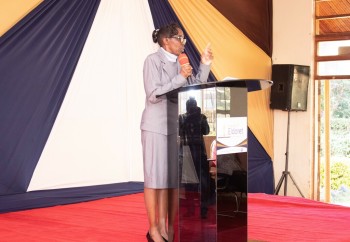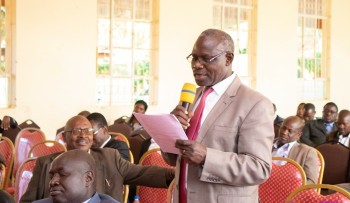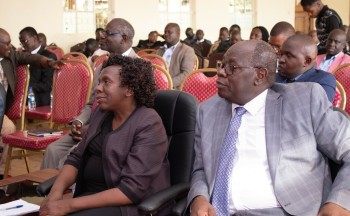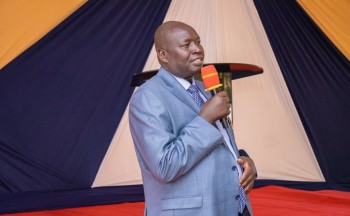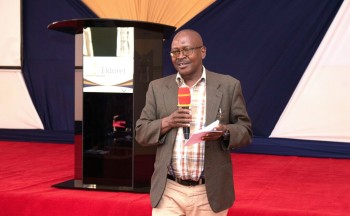During the preparation and development of a Strategic Plan, the validation of the plan is done through the engagement of both internal and external stakeholders who participate in the exercise for consultation, comprehensive feedback and contribution of valuable ideas and information.
The University of Eldoret held an external stakeholder validation exercise for the Strategic Plan 2023-2027 on Thursday 21st March, 2024.
The Strategic Planning Committee (SPC) and Directorate of Strategic Planning & Performance Contracting organized and coordinated the process by inviting stakeholders from corporate partners; KEBS, KCB, Equity Bank, Eldoret Hospital, NBK, KPLC, NACADA, NHIF; research institutions including KEFRI, KEPHIS, KALRO, KEMRI, ICIPE; national and county government leadership, National Treasury, Ministry of Education, religious leaders, staff unions; UASU, KUSU, KUDHEIHA, surrounding communities, representatives from neighboring counties leaders (NOREB); Higher Education Institutions, contractors & suppliers.
Prof. Thomas Cheruiyot, the Vice-Chancellor, took the stakeholders through the proposed Strategic Plan while reflecting on the great milestones and achievements gained from good planning through the previous Strategic Plans. He emphasized on where the University had come from and where it is now, the journey that began with the support from Chancellor of the University, the University Council and Management, staff, development partners, stakeholders and surrounding communities through financial resources, industrial linkages, partnerships and collaborations.
He pointed out that, the University had encountered both successes and challenges in the process of attaining its vision & mission and in fulfilling its mandate in the quality and relevance of the products & services it offers to its customers. The challenges included retention of competent and skilled staff, inadequate funding due the declining exchequer grants and the capital development fund, the new funding model which is pegged on student enrolment, lack of capacity in terms of physical and technological facilities, limited research capacity, attracting research funds and commercialization of research outputs for value addition. These were the strategic issues identified as key challenges that emanated from the environment in which the institution operates. The new Strategic Plan (2023-2027) will seek to address these issues through Strategic Objectives and the Key Result Areas (KRA’s).
The Strategic Plan 2023-2027 proposes a new vision statement, ‘A premier University nurturing global Leaders and Innovation for sustainability’ and a mission statement, ' To provide quality education, training, research and entrepreneurship in Science, Agriculture, Engineering, Technology and the Arts to meet the needs and aspirations of a dynamic society’.
In addition to highlights of the Strategic Plan, Prof. Cheruiyot guided the forum through the seven (7) strategic objectives which are categorized as four Key Result Areas (KRA’s) as shown in the table below. The detailed implementation framework for the seven strategic objectives has been developed and will be used to execute the activities on quarterly, half-year and annual basis. The monitoring, evaluation and reporting of achievements will be conducted on annual, mid-term and end-term performance reviews.
The Chairperson of the SPC committee subdivided the participants into four groups and assigned each group a KRA for further discussion. The groups were issued with questionnaires with prompt leading questions on the vision and the mission of the University by the team leader for each group.
During the plenary, the team leaders presented the summaries of the discussions as per the groups based on the KRA’s and the proposed vision and mission of the University. There were many positive and commendable reactions from the stakeholders on the growth of the university, excellence in research & innovations and walking towards becoming globally visible. The stakeholders expressed their satisfaction and were delighted to be associated with and be part of the success of the University since its inception. The neighboring communities, who were also included, expressed their commitment to support and be part of development of the University. They gave their suggestions and inputs were collected to be incorporated into the plan.
The Strategic Plan provides a roadmap towards the achievement of the University‘s objectives over the next five years and Prof. Cheruiyot committed to the long term planning of the university through following focus areas;
- To transform and reposition the university to be globally visible as a centre of innovations & research beyond 2024.
- A customer-centric university in its service delivery
- On delivering a university that would have a long-term sustainable competitive advantage.
The Key Result Areas and Strategic Objectives
| KRAs | Strategic Objectives |
| KRA 1 Academic excellence and student development | 1. To promote excellence in the quality of teaching and learning |
| 2. To enhance student experience and personal development | |
| KRA 2: Research, collaborations and extension services | 3. To enhance capacity for research, innovation and commercialization |
| 4. To strengthen stakeholder relationships and community service | |
| KRA 3: Infrastructural Development and institutional capacity | 5. To provide technological and physical infrastructure for conducive learning and working environment |
| KRA4: Institutional Governance & transformative leadership | 6. To promote employee productivity and good institutional governance |
| 7. To promote asset management and financial sustainability |

